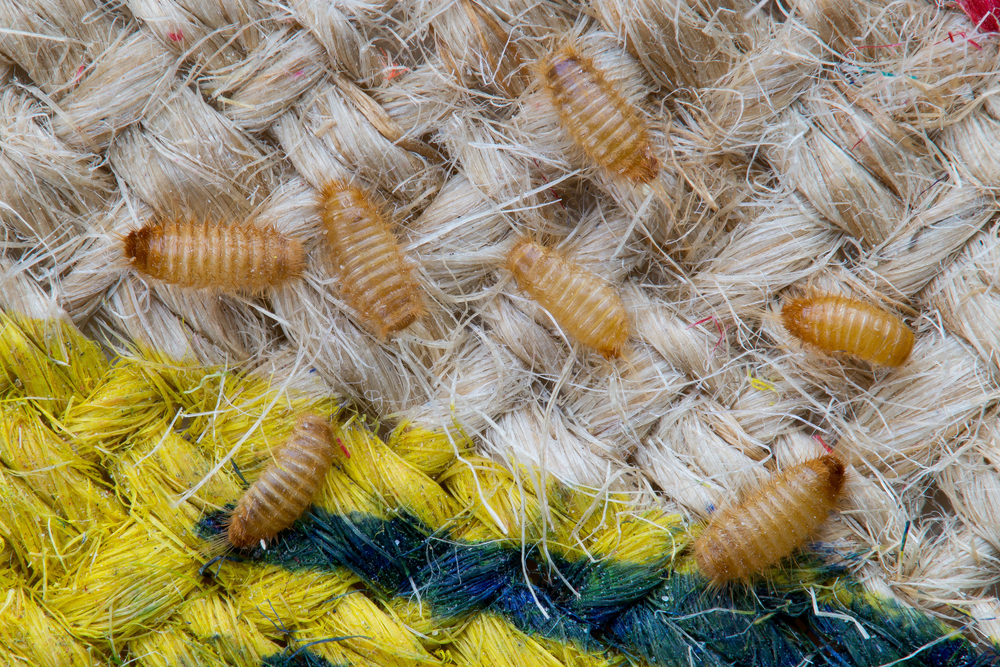
Customs and Border Protection (CBP) agriculture specialists at Washington Dulles International Airport (Dulles) and Baltimore Washington International Thurgood Marshall Airport (BWI) recently intercepted Khapra beetles, one of the world’s most destructive insect pests, in passenger baggage.
The Khapra beetle, also called trogoderma granarium, is a destructive insect pests of stored grains, cereals, and seeds that presents a significant economic threat to grain and cereal exporters such as the United States. Khapra beetle is the only insect for which CBP takes regulatory action, even when the insect is in a dead state.
On Feb. 23 at BWI, CBP agriculture specialists found two live adult Khapra beetles, one dead immature larva and several cast skins in two pounds of prohibited cow peas that a New York City resident brought from Nigeria. A U.S. Department of Agriculture (USDA) entomologist confirmed the specimens as Trogoderma granarium on March 6.
On Jan. 24, CBP agriculture specialists at Dulles Airport discovered four live Khapra beetle adults, 12 live larvae, several dead larvae and cast skins in a five-kilogram bag of prohibited basmati rice that a Washington, D.C. resident brought from Saudi Arabia. USDA entomologist confirmed Trogoderma granarium on Feb. 7.
CBP incinerated all food products.
“Khapra beetle is one of the most invasive and destructive insects that Customs and Border Protection may encounter, and it poses a significant threat to our nation’s agriculture industries and to our export economy,” Dianna Bowman, CBP area port director for Baltimore, said. “Protecting America’s agricultural resources is of paramount concern to CBP, and it’s a mission that our agriculture specialists take very serious.”
The Khapra beetle is known as a ‘dirty feeder,’ which means that it damages more grain than it consumes and contaminates grain with body parts and hairs. These contaminants can cause gastrointestinal irritation in adults and especially sicken infants. The beetles can also tolerate insecticides and fumigants and survive for long periods without food.
Infestations of Khapra beetle can have massive economic impacts. In 1953, California implemented eradication measures after a Khapra beetle infestation was discovered there. The effort was successful but at the cost of approximately $11 million, or $90 million in today’s dollars.
“This interception is another example that demonstrates the unwavering commitment of Customs and Border Protection agriculture specialists in safeguarding America’s agriculture by tirelessly inspecting travelers and goods arriving to the United States every day,” Casey Owen Durst, CBP’s field operations director in Baltimore, said.




